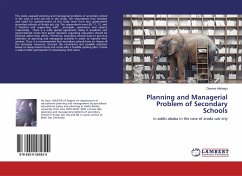Is discipline concerned with preventing misconduct or punishing it? Zero tolerance as a discipline policy has permeated the public school system. It has been referred to as "another example of the road to hell paved with good intentions" (Curwin & Mendler, 1999). While few would question a school's right and responsibility to punish students who violate rules aimed at keeping schools free of drugs and weapons, others proclaim that harsh punishments have made zero tolerance a troubled approach to discipline management (Giroux, 2001; Hess, 2003). According to state and national surveys, teachers report behaviors such as cursing, grabbing, pushing, verbal threats and intimidation as the most prevalent forms of student violence occurring on school campuses (Furlong & Morrison, 1994; Petersen, Beekley, & Speaker, 1998). With these types of daily distractions, how are teachers who confess to being effective classroom managers conducting meaningful instruction?








